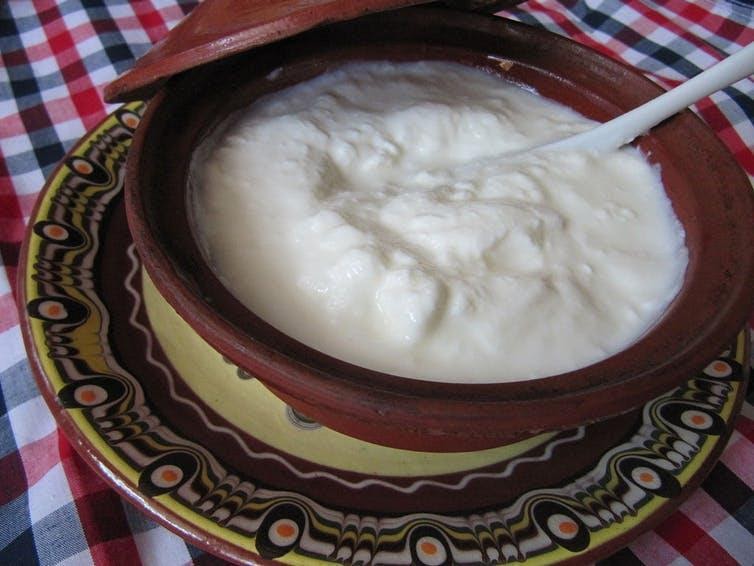
Standing in the dairy aisle at your supermarket, you find yourself staring at countless yogurt options. There is Greek, Iceland, Australian, Kefir, and Bulgarian. Then, there’s low-fat, non-dairy, flavored, lactose-free, unsweetened, and many more. While it can be difficult for a shopper to tell the difference of one from the other, each variety has defining characteristics. After all, yogurt is not just curdled milk. The bacterial strains specific to the region, temperature ranges, and fermentation processes are variables that influence taste and texture.
This article discusses yogurt from Bulgaria, the country credited with gifting this diary delight to the world.
How is Bulgarian yogurt different?
The answer to that lies in the live cultures added to the milk. The two primary strains used are Lactobacillus bulgaricus and Streptococcus thermophilus. As a matter of fact, the former gets its name from the country where it was first discovered. The bacteria, when added to the milk, kick off the fermentation process resulting in congealed milk.
Bulgarian yogurt has a distinctive sour taste. This is unlike the neutral or sweet taste of commercially bought yogurt. It has a jelly-like consistency and is dense, but not as thick as the popular Greek yogurt. It is creamy in texture. Bulgarian yogurt is traditionally made of goat, sheep, or buffalo’s milk. Nowadays, manufacturers also use cow’s milk and drier cultures to raise production.
Bulgarian yogurt was actually discovered by accident. Nomadic tribes stored and carried milk in animal skin bags. They strapped them around their waists as they moved between places. The heat of their bodies and the natural cultures led to fermentation causing the milk to coagulate and form yogurt.
Yogurt, as we know it today, gained popularity with the due research conducted by Bulgarian bacteriologist Dr. Stamen Grigorov. He studied a sample collected from the Balkan region and identified the yogurt-producing bacteria. The findings were later supported by yet another Russian bacteriologist and Nobel Laureate Ilya Ilyich Mechnikov. His study included a survey of nations with the highest life expectancy. The largest population of centenarians was found in Bulgaria. He proposed that the longer life expectancy could be attributed to the fact that people in the region ate large amounts of yogurt.
The Bulgarians do not so much use the word

Speak Your Mind